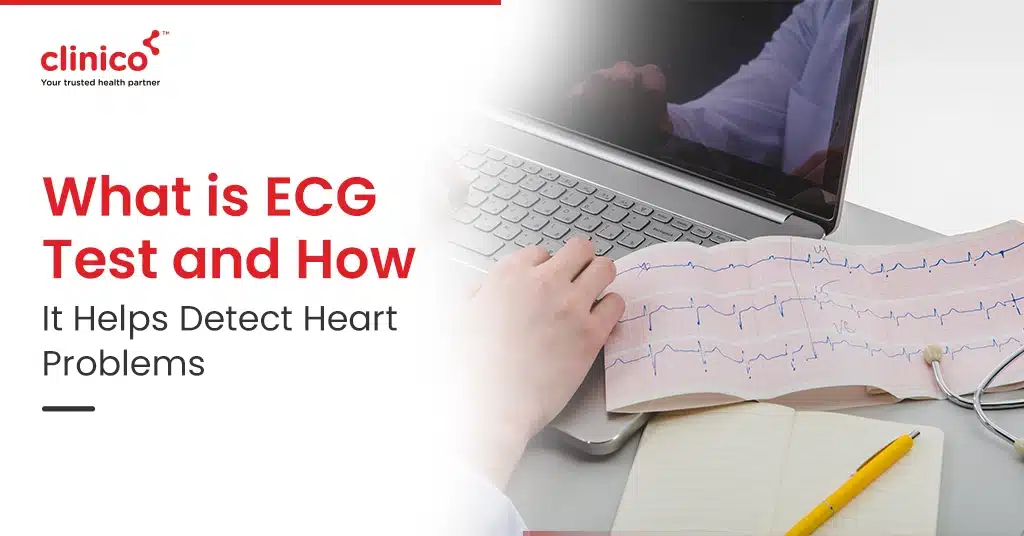
The heart is the most vital organ, which provides blood flow to the entire body. Therefore, monitoring cardiac health is significant for maintaining the health of the entire body. Amongst the most widely known and practical devices used in checking the heart is the electrocardiogram, known more commonly as an ECG. This tool records electrical activity in the heart for diagnoses of various heart diseases. In this blog, we will mainly focus on the ECG test and its importance in diagnoses of various heart diseases.
What is an ECG Device?
The ECG device is a medical tool that is widely used to record the electrical signals of the heart, which are then recorded in a graph with every wave’s timing and strength. To record the electrical signals, the electrodes are placed on the legs, arms, and chest. This test only takes 10 min.
How can it help in the diagnosis of heart disease?
Arrhythmias: It can be recorded in ECG because of its abnormal heart rhythm pattern. These could include atrial fibrillation and even tachycardia.
Heart Attack: It may indicate the presence of or history of myocardial infarction or heart attack via electrical or structural changes in ECG.
It can also describe decreased blood flow to the heart due to obstructive narrowing of arteries by indicating some specific pattern of ECG.
Another ECG-visible change is heart chamber dilation, like left ventricular hypertrophy.
Electrolyte Disturbance: The amount of potassium, calcium, and magnesium ions in blood can control the electrical function of the heart. Any failure in any one of them can open an entrance to such abnormalities being recorded on an ECG.
Patients with a pacemaker, patients with heart diseases, and patients with conditions as a result of some forms of heart disease are commonly reviewed with regards to heart conditions via ECG on routine appointments.
Who Should Undergo An ECG?
An ECG is prescribed for patients who experience such discomforts as:
- Chest pain or pressure
- Less palpitations, or with an irregular heartbeat
- One experience wheezing or shortness of breath.
- Dizziness or fainting spells
- Unwanted tiredness
It also comes in check-ups periodically if it is known that you may have a history of having heart diseases or you are already at risk due to different reasons, such as high blood pressure, diabetes, or due to smoking.
Benefits of an ECG Test
Not Invasive: The test is non-invasive, straightforward, and painless.
Rapid Diagnosis: The results of the test are usually produced within no time; this makes diagnosis and treatment occur very fast.
Cost-Effective: ECG tests are not expensive compared to other tools of diagnosis.
Early detection: Heart issues can be detected early; hence, there are no complications and greater chances for the treatment’s success.
Conclusion
An ECG test is a modern tool for diagnosing and monitoring heart diseases. It offers clear views to doctors on the electrical activities of the heart and their possible problems, after which they work out appropriate therapy plans. An ECG test may be one important step toward heart safety for one if symptoms of heart trouble exist or risk factors are noted. Please consult with your physician and seek advice on whether an ECG should be administered to you.
Prioritize Your Heart Health with Clinico! Book Your ECG Test Today and Take the First Step Toward a Healthier Heart. Contact Us Now!
FAQ’s
What is an ECG test and why is it important?
An ECG (electrocardiogram) test records the electrical activity of your heart. It helps diagnose heart conditions like arrhythmias, heart attacks, and other cardiac issues by detecting abnormal heart rhythms or changes in heart function.
Is the ECG test painful?
No, the ECG test is completely painless. Electrodes are placed on your chest, arms, and legs to monitor your heart’s electrical signals, and the test typically takes only about 10 minutes.
Who should get an ECG?
An ECG is recommended for individuals who experience symptoms such as chest pain, palpitations, shortness of breath, dizziness, or fainting. It’s also prescribed for those with a history of heart disease or risk factors like high blood pressure or diabetes.
How often should I get an ECG?
The frequency of ECG tests depends on your age, health history, and risk factors. People with heart disease or those at high risk may need regular ECG check-ups. Consult your doctor for personalized recommendations.
Are ECG tests expensive?
ECG tests are generally affordable and cost-effective compared to other diagnostic tools. They provide quick and valuable information about your heart’s health, making them an accessible option for many individuals.

